
Frederick William II was King of Prussia from 1786 until his death in 1797. He was in personal union the Prince-elector of Brandenburg and sovereign prince of the Canton of Neuchâtel. Pleasure-loving and indolent, he is seen as the antithesis to his predecessor, Frederick the Great.. Under his reign, Prussia was weakened internally and externally, and he failed to deal adequately with the challenges to the existing order posed by the French Revolution. His religious policies were directed against the Enlightenment and aimed at restoring a traditional Protestantism. However, he was a patron of the arts and responsible for the construction of some notable buildings, among them the Brandenburg Gate in Berlin.
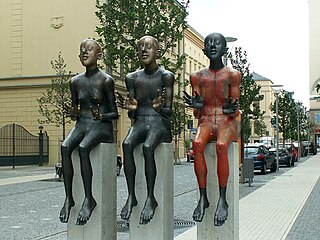
Religious toleration may signify "no more than forbearance and the permission given by the adherents of a dominant religion for other religions to exist, even though the latter are looked on with disapproval as inferior, mistaken, or harmful". Historically, most incidents and writings pertaining to toleration involve the status of minority and dissenting viewpoints in relation to a dominant state religion. However, religion is also sociological, and the practice of toleration has always had a political aspect as well.

Toleration is the allowing, permitting, or acceptance of an action, idea, object, or person which one dislikes or disagrees with. Political scientist Andrew R. Murphy explains that "We can improve our understanding by defining "toleration" as a set of social or political practices and "tolerance" as a set of attitudes.". Random House Dictionary defines tolerance as "a fair, objective, and permissive attitude toward those whose opinions, beliefs, practices, racial or ethnic origins, etc., differ from one's own".
An edict of toleration is a declaration, made by a government or ruler, and states that members of a given religion will not be persecuted for engaging in their religious practices and traditions. The edict implies tacit acceptance of the religion rather than its endorsement by the ruling power.

The epithet Nazarene was adopted by a group of early 19th-century German Romantic painters who aimed to revive spirituality in art. The name Nazarene came from a term of derision used against them for their affectation of a biblical manner of clothing and hair style.

Caesarism is an authoritarian or autocratic political philosophy inspired by Julius Caesar. It has been used in various ways by both proponents and as a pejorative.
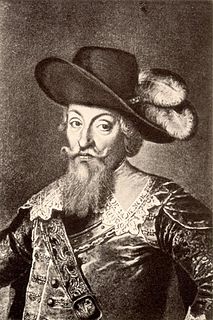
Johann or Hans Georg von Arnim-Boitzenburg was a German general. At different times during the Thirty Years' War, he was a Field Marshal for the Holy Roman Empire and its opponent the Electorate of Saxony. He also pursued various diplomatic tasks.
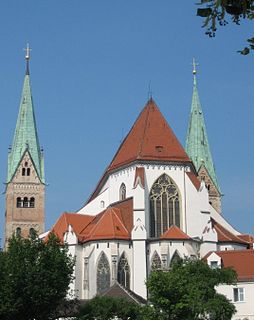
Diocese of Augsburg is a diocese of the Catholic Church in Germany. The diocese is a suffragan of the Archdiocese of Munich.

Duke Eberhard Louis was the Duke of Württemberg, from 1692 until 1733.

Wilhelm, Duke of Saxe-Weimar, was a duke of Saxe-Weimar.

The German-speaking states of the early modern period were divided politically and religiously. Religious tensions between the states comprising the Holy Roman Empire had existed during the preceding period of the Late Middle Ages —notably erupting in Bohemia with the Hussite Wars (1419–1434). However, the defining religious movement of this period, the Reformation, would result in unprecedented levels of violence and political upheaval for the region.

Prince Johann Georg of Hohenzollern was a German prince, and through his marriage to Princess Birgitta of Sweden, was brother-in-law of King Carl XVI Gustaf of Sweden.
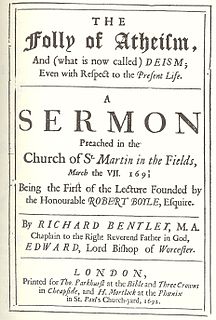
Atheism, as defined by the entry in Diderot and d'Alembert's Encyclopédie, is "the opinion of those who deny the existence of a God in the world. The simple ignorance of God doesn't constitute atheism. To be charged with the odious title of atheism one must have the notion of God and reject it." In the period of the Enlightenment, avowed and open atheism was made possible by the advance of religious toleration, but was also far from encouraged.

Agnes von Mansfeld-Eisleben (1551–1637) was Countess of Mansfeld and the daughter of Johann (Hans) Georg I, of Mansfeld Eisleben. She converted Gebhard, Seneschal of Waldburg, the Prince-Elector of Electorate of Cologne and archbishop of the Diocese of Cologne to the Protestant faith, leading to the Cologne War (1583–1588).

Charley's Uncle is a 1969 West German comedy film directed by Werner Jacobs and starring Gila von Weitershausen, Karl Michael Vogler and Heidy Bohlen. The film was a loose adaptation of Brandon Thomas' 1892 play Charley's Aunt and depicts the bond between a young woman and her uncle.

Henrietta Catherine Agnes of Anhalt-Dessau was a princess of Anhalt-Dessau by birth, Dean of Herford Abbey and by marriage Baroness of Loën.

The elector of Trier was one of the prince-electors of the Holy Roman Empire and, in his capacity as archbishop, administered the archdiocese of Trier. The territories of the electorate and the archdiocese were not, however, equivalent.
Gustav Wilhelm Frank was a German-Austrian Protestant theologian, known as the author of a multi-volume work on the history of Protestant theology.
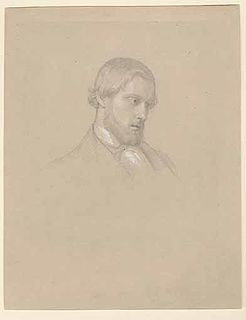
Claudius Schraudolph the Younger was a German painter and illustrator. He produced full-scale paintings, woodcut illustrations and decorative paintings. He is known as "the Younger" to distinguish him from his uncle Claudius, also a painter.
















